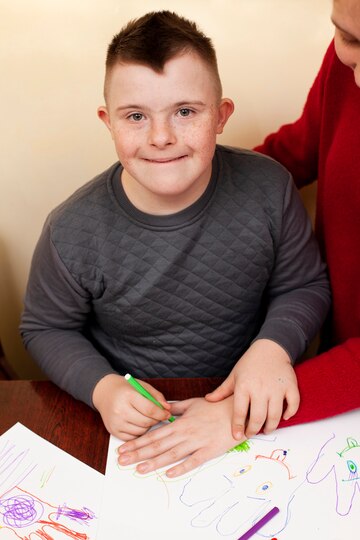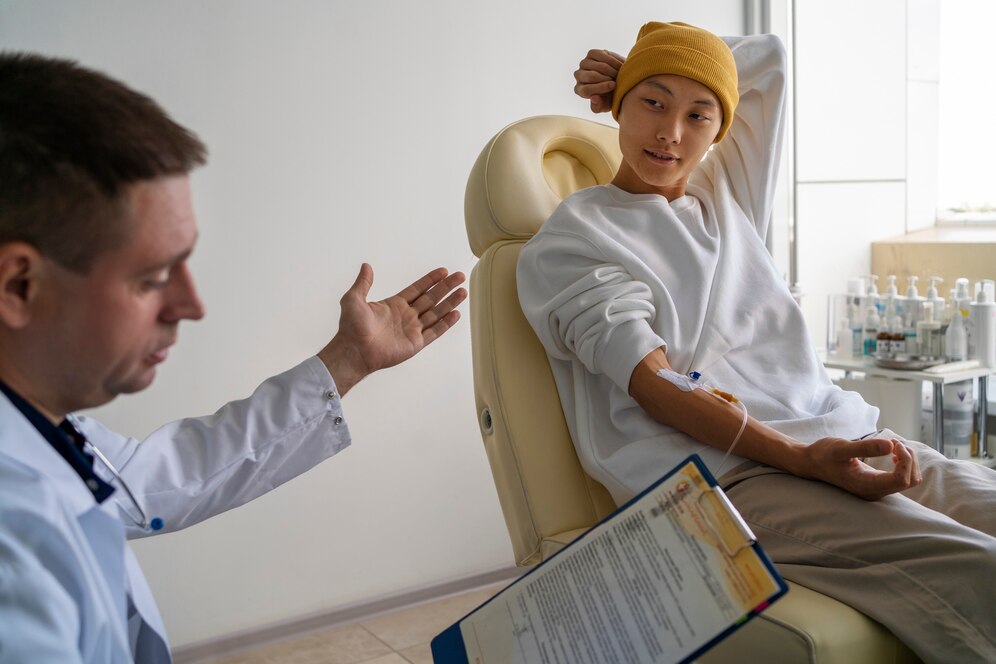Angelman syndrome is a rare genetic illness affecting the neurological system that causes movement difficulties, delayed development, and impaired speech. Despite the difficulties, people with Angelman syndrome are capable of amazing feats, and several well-known people have become well-known while having the illness.
However, People reported in 2007 that Farrell disclosed his son’s (19-year-old) diagnosis of Angelman syndrome. This rare neuro-genetic illness is sometimes misdiagnosed as cerebral palsy or autism. It is marked by developmental delays, lack of speech, seizures, and impaired balance.
Perry Williams, the British advocate and motivational speaker, is one well-known example. So Perry has attempted to enhance the quality of life for those impacted by Angelman syndrome by using his platform to spread knowledge about the disorder. Also He makes an attempt by participating in fundraising events and giving speeches at conferences.
Paige McPherson, an American athlete who has participated in multiple sports and emerged as a positive role model for individuals with disabilities, is another inspirational person. Paige’s accomplishments demonstrate how people with Angelman syndrome may succeed and break through boundaries in fields that they are passionate about.
Although, These folks and others like them show that it is possible for people to have meaningful lives and contribute significantly to society even in the face of the difficulties associated with Angelman syndrome. Their experiences serve as a monument to tenacity and the effectiveness of action in generating awareness and promoting inclusivity in society.
Angelman syndrome baby

At first, Families may find it especially difficult to deal with infants who have Angelman syndrome because it is frequently misdiagnosed. Usually, a combination of genetic tests and developmental milestones is used to diagnose the illness. However, What to anticipate from a baby with Angelman syndrome is as follows:
Early Warning Indications
Developmental Delays: Infants with Angelman syndrome may take longer than expected to meet milestones in their development, including sitting, crawling, and walking.
Speech and Communication Issues: Affected children frequently experience severe speech deficits as well as communication issues.
Movement and Coordination Problems: They may exhibit symptoms of hypotonia, or low muscle tone, as well as shaky gaits and poor motor coordination.
Sleep disturbances: It’s not uncommon to have trouble falling asleep or waking up a lot.
Procedure for Diagnosis
Genetic Testing: The UBE3A gene, which is frequently linked to Angelman syndrome, is the focus of genetic testing used to confirm the diagnosis.
Clinical Assessment: When a pediatrician observes the distinctive symptoms, they may recommend genetic testing or a specialist assessment.
Early Intervention
Therapies for Early Intervention: It’s critical to start early. In order to address developmental delays and enhance quality of life, physical therapy, occupational therapy, and speech therapy can be helpful.
Support: Making connections with organizations and support groups that specialize in Angelman syndrome can be very beneficial for families. These resources can provide direction, consolation, and useful counsel.
Resources and Guidance:
Those Organizations that support research and provide assistance to individuals impacted by Angelman syndrome include the Angelman Syndrome Alliance and the Angelman Syndrome Foundation. They also offer helpful resources for families. They can provide details on therapies, treatments, and support from the local community.
Mostly, Children with Angelman syndrome are capable of progressing and leading happy lives if they receive early attention and support. Every child’s experience is different, and their continuing therapy and care are customized to meet their specific need.
who treats Angelman syndrome

Because Angelman syndrome has so many different symptoms and is so complex, treating the disorder usually requires a multidisciplinary approach. When it comes to caring for and assisting those who have Angelman syndrome, here are some of the following specialists frequently play crucial roles:
1. Researchers in genetics
Function: Provide details regarding the genetic components of Angelman syndrome and validate the diagnosis through genetic testing.
Clinical genetics and genetic counseling are areas of specialty.
2. Child physicians
Function: Manage overall health and development, arrange for specialized care, and administer standard medical care.
Developmental pediatrics or general pediatrics are the specialties.
3. Physicians with neurological disorders
Function: Take care of neurological problems pertaining to motor, coordination, and cognitive maturation.
Depending on the age, either adult or pediatric neurology is the specialty.
4. Physiotherapists
Role: Through focused workouts and interventions, assist in enhancing motor skills, balance, and coordination.
Physical therapy for children is her specialty.
5. Occupational Therapists
Role: Help with fine motor skills, sensory integration, and everyday living abilities.
Occupational therapy for children is her specialty.
6. Occupational Therapists
Role: Practice communication techniques, using augmentative and alternate forms of communication as necessary.
Specialty: Speech-language pathology in children.
7. Counselors in Behavior
Support the development of behavior and emotions, particularly the management of difficult behaviors.
Expertise: Behavioral therapies such as applied behavior analysis (ABA).
8. Pediatricians who specialize in development
Role: Pay attention to developmental milestones and the general advancement of development.
Developmental-Behavioral Pediatrics is the specialty.
9. Nutritionists and dietitians
Function: Offer nutritional advice, particularly in cases where there are feeding issues or specific dietary requirements.
Pediatric nutrition is a specialty.
10. Counselors for Genetics
Position: Provide guidance and instruction on the hereditary components of Angelman syndrome, encompassing inheritance trends and family planning.
Genetic counseling is her specialty.
11. Social Workers
Function: Assist families in locating community assistance, navigating healthcare systems, and accessing resources.
Clinical or medical social work are examples of specialties.
12. Experts in Special Education
Function: Provide support for curriculum development, individualized education plans (IEPs), and school environment integration.
Special education is a specialty.
Working together and coordinating care
A collaborative approach is frequently necessary for managing Angelman syndrome, with these experts collaborating to develop and carry out an individualized care plan. Working together, experts can make sure that every facet of a person’s growth and well-being is taken care of.
Additionally, Working with healthcare professionals who understand the unique challenges and treatment tactics of Angelman syndrome is essential for receiving the most accurate and individualized care.



